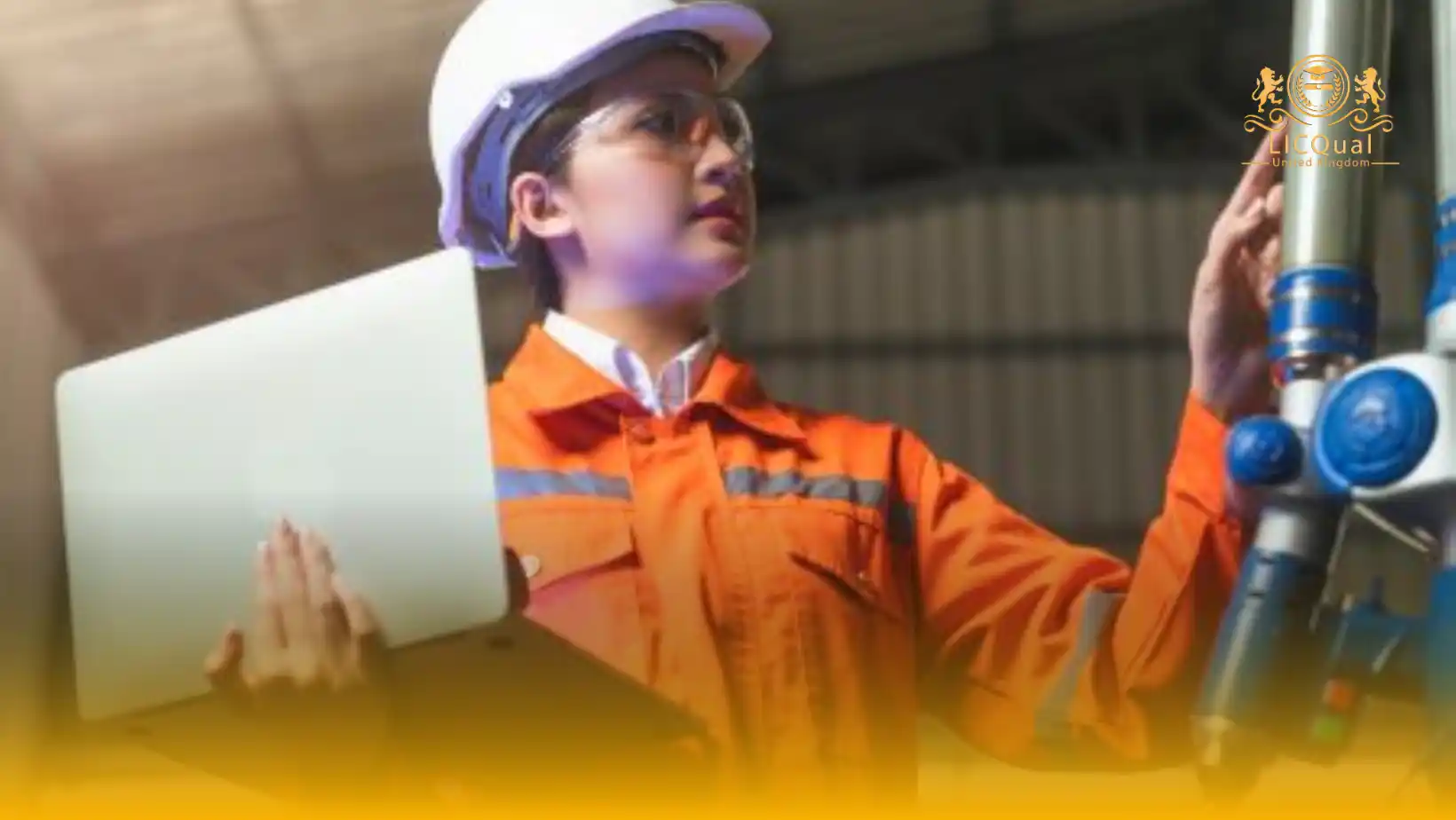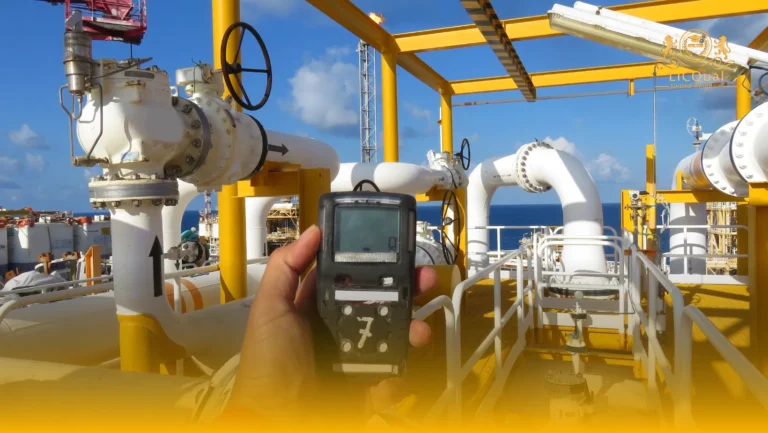The LICQual Level 6 Diploma in Oil and Gas Quality Control and Quality Assurance (QC/QA) is a specialised qualification designed for experienced professionals aiming to advance their expertise in quality systems, inspection processes, and assurance standards within the oil and gas sector. This programme equips learners with the technical knowledge, analytical skills, and industry best practices required to ensure compliance, safety, and operational excellence in upstream, midstream, and downstream operations.
Unlike entry-level qualifications, this diploma is intended for individuals who already have relevant experience in oil and gas engineering, inspection, or quality management. It is ideal for professionals seeking to enhance their career prospects, expand their technical capabilities, and strengthen their Continuing Professional Development (CPD) portfolio.
The course covers key areas including international QC/QA standards, non-destructive testing (NDT) applications, pipeline inspection techniques, welding quality management, and risk-based quality control strategies. Learners will develop the ability to manage quality assurance programmes, oversee inspections, interpret technical specifications, and ensure compliance with regulatory and contractual requirements.
By completing this diploma, learners will be equipped to take on senior roles such as Quality Control Manager, QA/QC Engineer, Inspection Supervisor, or Compliance Auditor within oil and gas operations. The qualification not only enhances professional credibility but also supports the development of a proactive approach to safety, reliability, and efficiency in the industry.
This is a career-focused, industry-relevant programme that empowers professionals to meet the highest quality and safety benchmarks, contributing to sustainable and reliable oil and gas operations worldwide.
Course Overview
Qualification Title
LICQual level 6 Diploma in Oil and Gas Quality Control and Quality Assurance QC/QA
Total Units
6
Total Credits
120
GLH
480
Qualification #
LICQ2200686
Qualification Specification
To enroll in the LICQual level 6 Diploma in Oil and Gas Quality Control and Quality Assurance QC/QA, applicants must meet the following criteria:
|
Qualification# |
Unit Title |
Credits |
GLH |
|---|---|---|---|
|
LICQ2200686-1 |
Advanced Principles of Quality Control and Assurance in Oil and Gas |
20 |
80 |
|
LICQ2200686-2 |
Advanced Inspection and Non-Destructive Testing (NDT) Techniques |
20 |
80 |
|
LICQ2200686-3 |
Welding Quality Control, Metallurgy, and Material Integrity |
20 |
80 |
|
LICQ2200686-4 |
Piping Systems, Pressure Vessels, and Structural Fabrication QA/QC |
20 |
80 |
|
LICQ2200686-5 |
Integration of Quality Assurance with Health, Safety, and Environmental (HSE) Standards |
20 |
80 |
|
LICQ2200686-6 |
Project Quality Management, Supplier Auditing, and Continuous Improvement |
20 |
80 |
By the end of the course, learners will be able to:
1. Advanced Principles of Quality Control and Assurance in Oil and Gas
By the end of this unit, learners will be able to:
- Explain the advanced concepts and functions of QC and QA in upstream, midstream, and downstream oil and gas operations.
- Apply relevant international quality standards (ISO 9001, API Spec Q1, ASME, ASTM) in real-world industry scenarios.
- Develop quality control plans, inspection test plans (ITPs), and associated documentation for oil and gas projects.
- Demonstrate professional ethics and accountability in QC/QA roles within the oil and gas sector.
2. Advanced Inspection and Non-Destructive Testing (NDT) Techniques
By the end of this unit, learners will be able to:
- Identify and select appropriate NDT methods (UT, RT, MT, PT, VT, ET) for different oil and gas applications.
- Perform and interpret NDT results in compliance with ASNT, ISO 9712, and other industry-specific standards.
- Evaluate the integrity of materials, welds, and components in pipelines, vessels, and structural systems.
- Document inspection findings and recommend corrective actions for non-conformities.
3. Welding Quality Control, Metallurgy, and Material Integrity
By the end of this unit, learners will be able to:
- Prepare and review Welding Procedure Specifications (WPS) and Procedure Qualification Records (PQR) according to industry standards.
- Assess welder qualifications and ensure compliance with approved procedures.
- Analyse metallurgical properties of carbon steel, stainless steel, and alloy materials in oil and gas operations.
- Identify, evaluate, and prevent welding defects to maintain structural integrity in critical environments.
4. Piping Systems, Pressure Vessels, and Structural Fabrication QA/QC
By the end of this unit, learners will be able to:
- Apply ASME B31.3, API 650, API 1104, and other relevant standards to piping and structural fabrication projects.
- Conduct inspections for piping systems, pressure vessels, and offshore structural components.
- Perform hydrostatic, pneumatic, and leak testing procedures to verify system integrity.
- Maintain accurate quality documentation and ensure traceability for fabricated components.
5. Integration of Quality Assurance with Health, Safety, and Environmental (HSE) Standards
By the end of this unit, learners will be able to:
- Integrate QC/QA processes with HSE management systems (ISO 45001, ISO 14001) in oil and gas projects.
- Conduct risk assessments and develop hazard mitigation strategies for inspection and testing operations.
- Apply environmental protection measures in quality control processes.
- Perform root cause analysis and implement corrective and preventive action (CAPA) plans.
6. Project Quality Management, Supplier Auditing, and Continuous Improvement
By the end of this unit, learners will be able to:
- Plan and implement quality management systems in EPC (Engineering, Procurement, and Construction) projects.
- Conduct supplier qualification assessments and vendor inspections to ensure compliance.
- Execute internal and external audits according to industry best practices.
- Apply Six Sigma, Lean, and other continuous improvement tools to enhance QC/QA performance in oil and gas operations.
The LICQual Level 6 Diploma in Oil and Gas Quality Control and Quality Assurance (QC/QA) is designed for professionals and aspiring specialists who aim to advance their careers in the oil and gas industry’s critical quality domain. This qualification is ideal for:
- Quality Control / Quality Assurance Engineers and Inspectors seeking to enhance their technical expertise and leadership capabilities.
- Welding Inspectors, NDT Technicians, and Fabrication Supervisors aiming to align their skills with global industry standards.
- Project Managers and Site Engineers responsible for ensuring quality compliance in upstream, midstream, and downstream projects.
- HSE Officers and Managers wishing to integrate quality principles with health, safety, and environmental management systems.
- Procurement, Supplier Quality, and Vendor Audit Specialists who manage technical compliance and quality verification in the supply chain.
- Graduates and Experienced Technicians from mechanical, petroleum, or industrial engineering backgrounds seeking career advancement in QA/QC.
- Military, Offshore, and Energy-Sector Personnel transitioning into quality-focused roles within oil and gas projects.
Assessment and Verification
All units within this qualification are subject to internal assessment by the approved centre and external verification by LICQual. The qualification follows a criterion-referenced assessment approach, ensuring that learners meet all specified learning outcomes.
To achieve a ‘Pass’ in any unit, learners must provide valid, sufficient, and authentic evidence demonstrating their attainment of all learning outcomes and compliance with the prescribed assessment criteria. The Assessor is responsible for evaluating the evidence and determining whether the learner has successfully met the required standards.
Assessors must maintain a clear and comprehensive audit trail, documenting the basis for their assessment decisions to ensure transparency, consistency, and compliance with quality assurance requirements.







